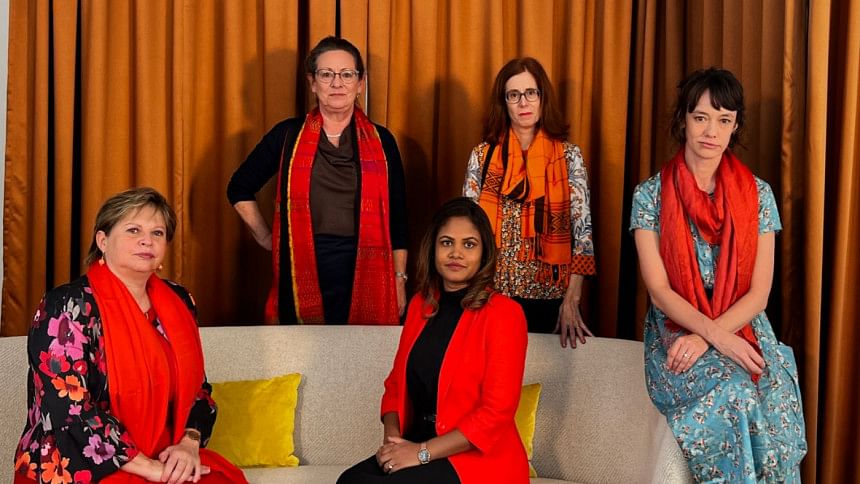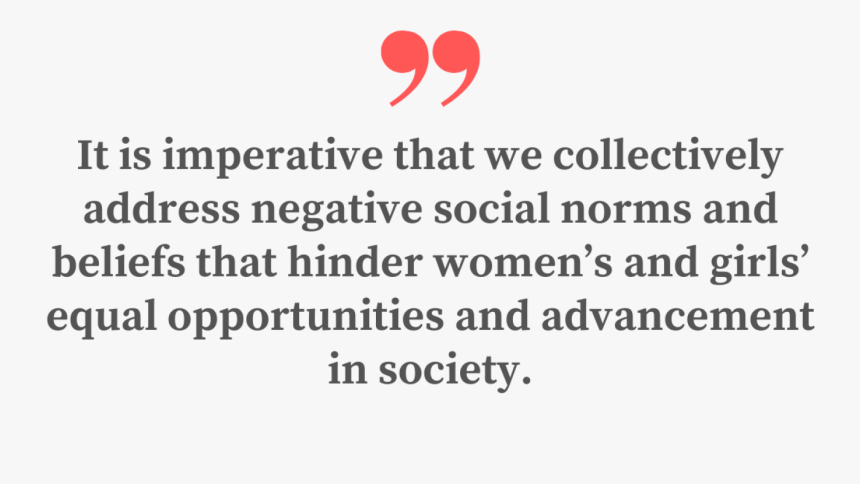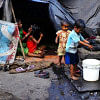Gender-based violence not just a women’s issue

The female ambassadors and high commissioners in Dhaka from Canada, Denmark, Maldives, Sweden, Switzerland, and Thailand are strongly committed to promoting gender equality and combating sexual and gender-based violence in all its forms. Ensuring the full enjoyment of human rights by all women and girls is fundamental for achieving the Sustainable Development Goals (SDGs), our global commitment under the 2030 Agenda.
Our countries believe that gender equality is a prerequisite for sustainable development, including social justice, peace and security, and prosperity. And yet, despite decades of struggle, gender inequality and gender-based violence continue to exist in our own countries to varying extents, as they do here. As long-standing friends of Bangladesh, the countries that we represent have been working with stakeholders from the government and civil society for decades, to tackle the root causes of gender inequality. We are looking forward to our continued partnership towards this end.
November 25 marked the start of the 16 Days of Activism against Gender-Based Violence, an annual campaign that draws attention to the scourge of violence against women and girls. Sexual and gender-based violence includes any harmful act of sexual, physical, mental or emotional abuse based on gender. It happens disproportionately more to women and girls in every country and every society. At home, in schools, on the streets, at work, on the internet, in conflicts and in refugee camps. Violence towards women and girls is omnipresent. Too often, this kind of violence is normalised and goes unpunished.

Sexual and gender-based violence devastates individuals, families and communities. The effects of such violence can be long lasting and profoundly affect a person's life. But beyond the severe and long-term impacts of sexual and gender-based violence on the survivor, there are significant impacts on economic and social progress. So gender-based violence is not only terrible for the victim – it is costly for society.
It is imperative that we collectively address negative social norms and beliefs that hinder women's and girls' equal opportunities and advancement in society. We are committed to this goal by protecting and advancing the human rights of women and girls, by supporting their equal participation in decision-making at all levels of political, economic and social life, and by reducing inequalities in access and control over resources.
Combatting sexual and gender-based violence is not only a women's issue. It is a joint effort where we encourage all of society to engage. A societal ecosystem approach, where public and private sectors, academia, civil society, communities and families work together, is crucial for real transformative change. Without the active engagement of men and boys, we cannot achieve gender equality.
The 16 days of activism campaign is an opportunity for each and every one of us to reflect on what we can do to promote gender equality and to eliminate gender-based violence. In our own family, our communities, and in our societies.
Canada, Denmark, Maldives, Thailand, Sweden, and Switzerland are standing up to end sexual and gender-based Violence. Join us – for these 16 days, and every day.
HE Lilly Nicholls is high commissioner of Canada to Bangladesh.
HE Winnie Estrup Petersen is ambassador of Denmark to Bangladesh.
HE Shiruzimath Sameer is high commissioner of the Republic of Maldives to Bangladesh.
HE Alex Berg von Linde is ambassador of Sweden to Bangladesh.
HE Nathalie Chuard is ambassador of Switzerland to Bangladesh.
HE Makawadee Sumitmor is ambassador of the Kingdom of Thailand to Bangladesh.

 For all latest news, follow The Daily Star's Google News channel.
For all latest news, follow The Daily Star's Google News channel. 









Comments